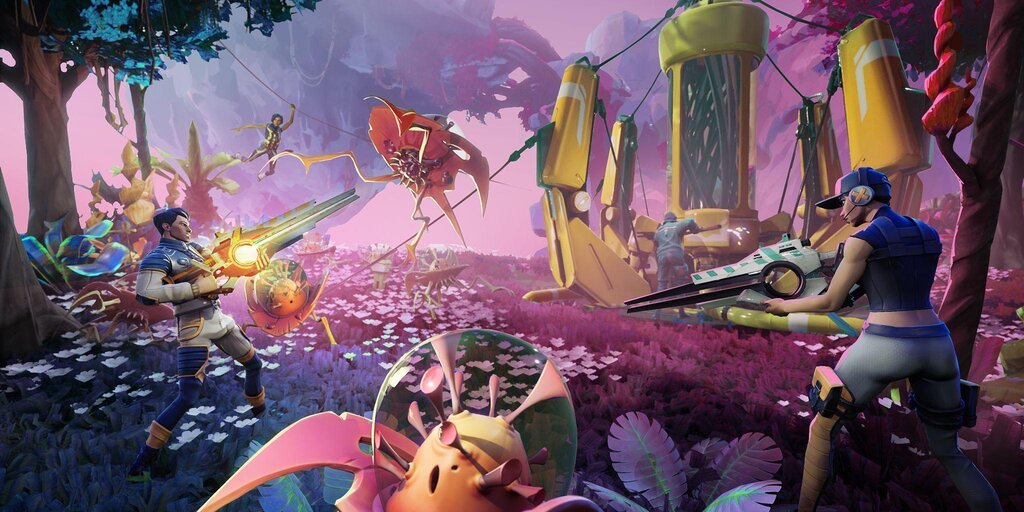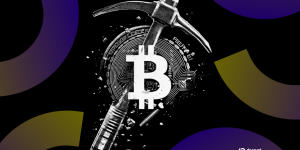Animoca Brands ‘Not Done Acquiring’ Studios to Make NFT Games: Chairman
3 years ago CryptoExpert
In brief
Animoca Brands recently acquired three game studios, including Eden Games.
Co-founder Yat Siu told Decrypt that Animoca may acquire more studios, and discussed its F1 Delta Time shutdown and increasing “metaverse-first” IP focus.
Animoca Brands is a leading investor in blockchain gaming and NFT startups, but it also publishes its own NFT-powered games, including the Ethereum-based metaverse experience The Sandbox. And Animoca has been on a serious acquisition spree.
Since the start of the year, Animoca has picked up development studios Eden Games, Darewise Entertainment, and Grease Monkey Games. And there may be more to come.
“We’re not done acquiring,” Animoca Brands founder and Executive Chairman Yat Siu told Decrypt last week. “What we’re looking to do is to acquire companies in different fields of gameplay in which we don’t quite have the exposure.”
Eden and Grease Monkey are both focused on racing games, which fits well into Animoca’s existing REVV token ecosystem, which includes REVV Racing on Polygon—a sidechain scaling solution for Ethereum—as well as MotoGP Ignition on Flow. Grease Monkey’s upcoming Torque Drift 2 will integrate into the REVV ecosystem, as well.
Meanwhile, Eden Games is a veteran studio founded in 1998 that’s developed games in the Need for Speed and Test Drive franchises, as well as a licensed Formula One mobile game. While Eden has focused more on mobile games in recent years, the studio has a history of producing robust console and PC racing experiences with rich gameplay.
Siu believes that future blockchain games will “absolutely” reach a similar standard of quality. He sees it much like the mobile space, in which simple early hits like Angry Birds led to much more polished 3D titles that captured the essence of higher-end home games. In this case, however, he said that it’s not a matter of waiting for hardware power to catch up.
“We can accelerate that much faster, which is why we are acquiring these studios with this kind of reputation,” said Siu, “and building very high-quality games on blockchain.”
Darewise, meanwhile, is a French startup founded in large part by former Ubisoft developers, and its first project is a massively multiplayer online role-playing game (MMORPG) called Life Beyond that will use NFTs for in-game items. An NFT acts like a deed of ownership to a digital item, and can include things like avatars, weapons, vehicles, apparel, and virtual land.
Siu said that Animoca could expand into dozens of genres with NFT-powered games. Two specific genres that the firm is looking at are first-person shooters (FPS) and Japanese role-playing games (JRPGs).
Owning the risk
Why acquire game studios rather than partner with them via a publishing agreement? Siu said that for Animoca, it’s a matter of shouldering the risk and responsibility in launching Web3 games, which are still relatively new and rely on experimental business models.
Such games can have temperamental economic models, too. Axie Infinity, by far the most prominent NFT game to date, went from a surging success in 2021—billions of dollars’ worth of NFT trades, millions of daily players—to an economic freefall over the last few months as its inventive play-to-earn model crumbled.
Animoca, which backed Sky Mavis and the Axie Infinity ecosystem well before its rise, recently invested even further into the studio after its headline-grabbing $622 million hack in March. In a similar sense, Siu said that the firm can help acquired game studios make the transition to Web3 and provide a longer runway and a “safety net” of sorts if things do go awry.
“What we realized almost four years ago when we embarked on this mission is that it’s very hard to onboard people and studios into the space unless … essentially, the responsibility of making a mistake is not theirs anymore,” Siu explained. “In other words, if things go wrong, it’s our fault.”
Shifting from a traditional video game business model can be difficult, he suggested. Instead of striving to make tens of millions of dollars in primary sales from a premium title, blockchain games mostly rely on taking a tiny cut of a much larger tally of secondary peer-to-peer sales—potentially hundreds of millions or billions of dollars’ worth.
“Just mentally speaking, that’s a tough model” for creators outside of Web3 to embrace, Siu admitted. But Animoca, which was recently valued above $5 billion and has invested in more than 100 teams in the space, has the capital and experience to help game studios launch, support, and adjust token-driven games until they potentially reach a significant audience.
“Even if our project doesn’t entirely work out,” Siu explained, “they’ve got the runway to make it work over time, which is something that is easier to elaborate on today than before.”
The Sandbox’s creators similarly started out as a traditional game studio called Pixowl before Animoca acquired it in 2018. In 2021, Animoca acquired Australian game developer Blowfish Studios, which has gone on to launch the Phantom Galaxies, a Polygon-based robot action game with more than 500,000 unique owners of in-game NFT items.
Working with brands
Animoca’s additions of Eden Games and Darewise both came after last month’s announcement that the publisher would shut down F1 Delta Time, an officially licensed Ethereum NFT game based on Formula One racing.
According to the initial announcement, Animoca was unable to renew the league license. Owners of F1 Delta Time NFTs, who had collectively spent millions of dollars’ worth of ETH on digital items like licensed cars and race track segments, were offered replacement NFT items for REVV Racing, along with other perks and incentives.
Siu affirmed that Animoca attempted to renew the license and that it “made sense” to try, but would not speak further about the negotiations, citing confidentiality agreements.
F1 Delta Time originally launched in 2019, well before the concept of NFTs entered the mainstream and were broadly understood. Without naming specific firms, Siu suggested that some brands that entered the space before last year’s NFT market boom may not have understood the full scope of how such NFT-driven games are operated.
On the other hand, Siu said that some brands that Animoca has worked with truly understand blockchain games, pointing to the MotoGP motorcycle racing league. “MotoGP, I would say, is a good example of a brand that does get it,” he said. “We’re very confident working with them on everything in that arena.”
Interestingly, Siu noted that many F1 Delta Time NFT owners have thus far opted to keep their assets, rather than exchange them for REVV Racing NFTs. While the game itself is now offline, people can still own some of the first F1 NFTs created, as verified by the Ethereum blockchain.
Furthermore, the Web3 community could potentially use those NFT assets within other games and metaverse experiences down the line, even without the official ongoing F1 stamp. “People can compose freely on top of it,” Siu noted of NFTs.
Metaverse first
While Animoca Brands still publishes games based on licensed brands—including MotoGP and Formula E—Siu said the firm is increasingly focused on fully-owned IP, as well as NFT-driven properties that are born out of the Web3 world.
“What we’re taking is a metaverse-first IP approach,” Siu affirmed.
Eden Games, for example, will develop a “new series” of racing games under Animoca, per the original acquisition announcement, in addition to supporting existing REVV ecosystem games. Darewise’s Life Beyond is an original IP, as are The Sandbox and Phantom Galaxies.
Siu also pointed to Animoca’s support of ApeCoin, an Ethereum token created for the growing Web3 ecosystem around Yuga Labs’ Bored Ape Yacht Club. ApeCoin (APE) launched in March to significant buzz, and Siu himself is one of the founding board members.
Animoca is also working with Yuga Labs on an ApeCoin-fueled project, which might be the Otherside metaverse game revealed last month. ApeCoin’s price shot up last week on rumors of an impending virtual land sale for Otherside. Yuga Labs has since announced an Otherside launch on April 30, albeit without specific details.
The best of Decrypt straight to your inbox.
Get the top stories curated daily, weekly roundups & deep dives straight to your inbox.












